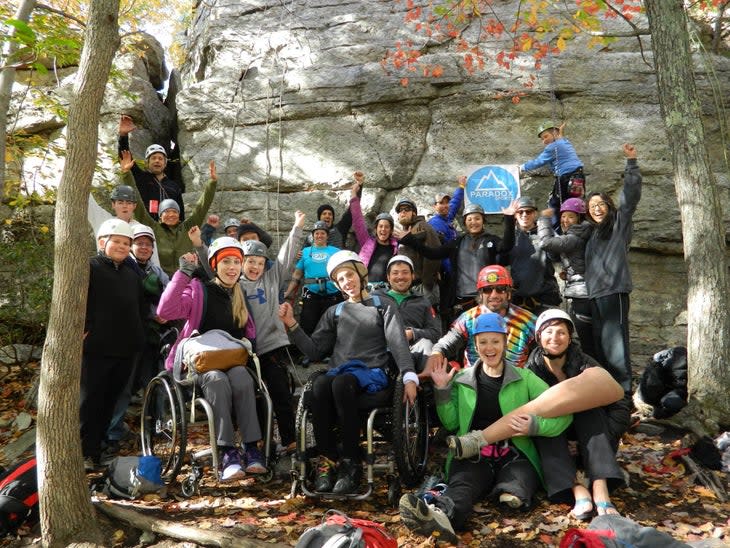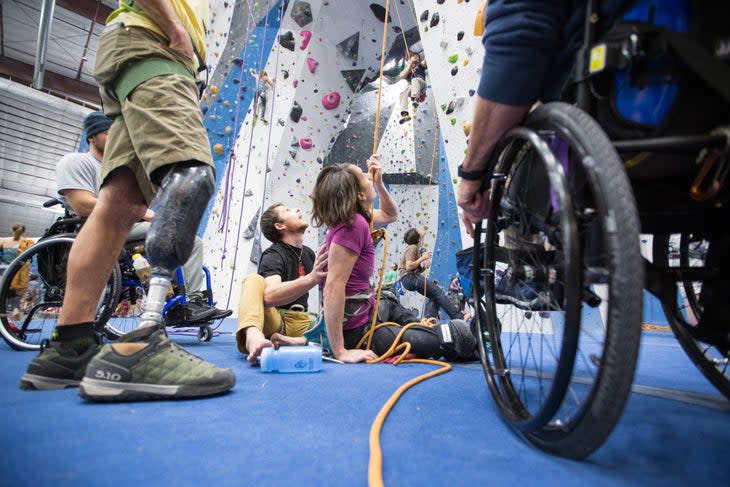How Paradox Sports Is Making Climbing a More Inclusive Space
This article originally appeared on Climbing
Dan Boozan was had an arm paralyzed in a cycling accident. Enock Glidden was born with Spina Bifida--a rare disease that resulted in waist-down paralysis. Aika Yoshida broke her neck in an acrobatic accident and was confronted with a long and uncertain road back to athletics.
What do these athletes have in common? They, like thousands of others, found healing and strength through climbing with the help of Paradox Sports.

Since its founding in 2007, Paradox Sports, a 501(c)3 nonprofit, has worked tirelessly to expand accessibility in our sport. They do this by hosting national climbing trips for adaptive climbers and veterans' groups, introducing hundreds of people with disabilities to the sport every year; they run local clinics designed to help adaptive climbers increase their skills in a community setting; they conduct trainings for gyms, guiding services, veterans-affairs facilities, and university programs around the country, sharing the latest adaptive climbing practices so these organizations can better serve their local adaptive communities; and they sponsor individual athletes through their Adaptive Adventure Fund.
Thanks to Paradox, Dan Boozan has found a new sport he's passionate about and a community to go with it. Aika Yoshida returned to climbing and is pulling harder than ever. And Enock Glidden ascended Zodiac on El Cap--a process that, for him, involved doing some 800 pull-ups a day for five consecutive days.

Each year, Paradox touches roughly 350 people with physical disabilities, including--but not limited to--people with amputation or limb difference, blindness, hearing impairment, spinal cord injuries, neurological conditions, traumatic brain injuries, and post-traumatic stress disorder.
Paradox achieves this with the help of a variety of funding sources--but roughly 10% of their revenue comes from individual donations. With this in mind, Climbing has partnered with Paradox Sports through Outside's Find Your Good program. Our goal: to help them do what they do.
We urge you to consider donating or volunteering your time.
For exclusive access to all of our fitness, gear, adventure, and travel stories, plus discounts on trips, events, and gear, sign up for Outside+ today.

